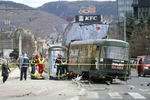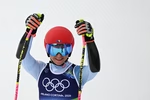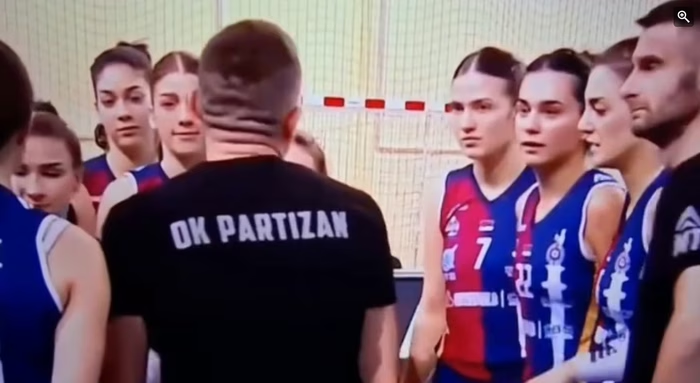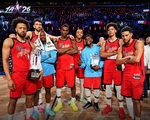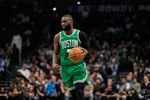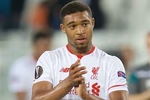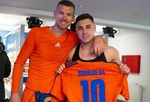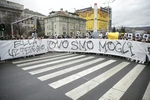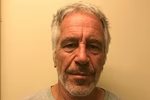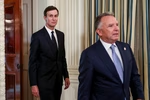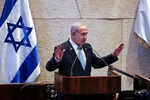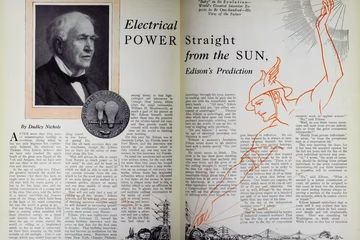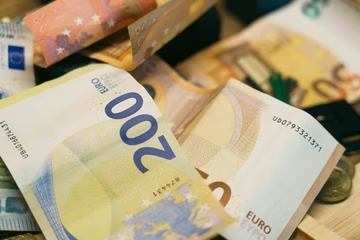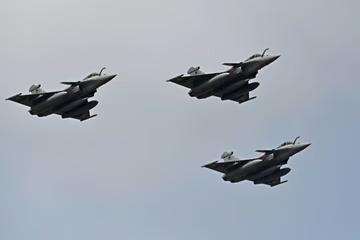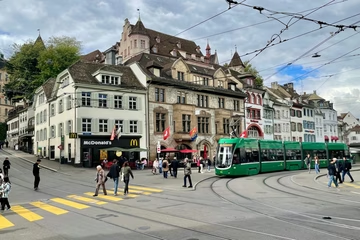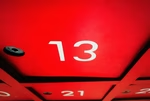Ukrainian FM for N1: We ask Serbians not to view Ukraine through lenses of Russian propaganda
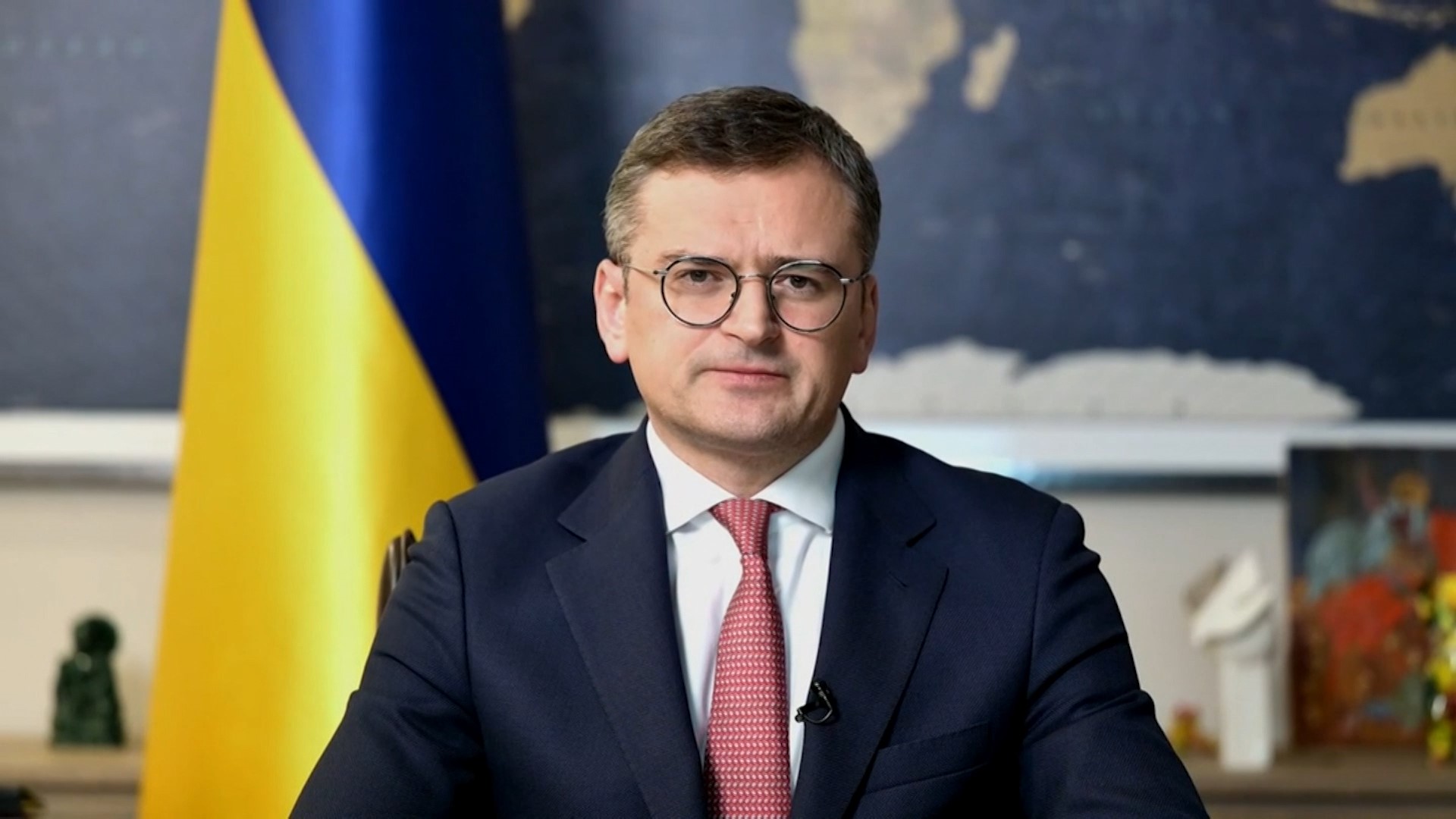
The longer any war lasts, the harder it gets. I don’t think Ukraine is unique in this particular situation, any country in the world that has experienced war can testify to this fact. But when you are set to win the war because it’s a war for your existence, and you know that, if you lose the war, your country will be erased to the ground, your identity will be erased as well, then you do not think in terms of how hard it is, because it doesn’t matter how hard it is, said Ukrainian Foreign Minister Dmytro Kuleba who is paying an official visit to Serbia.
“You have to win by all means, you have to protect yourself because it’s a matter of survival. So, frankly, I’m not asking even myself whether it got harder or easier, I’m just doing every day what I can and more than I can to bring victory closer,” Kuleba told an interview with N1.
Asked if it is difficult to maintain focus on Ukraine and secure help and assistance from other countries, Kuleba said it gets more difficult in some countries and easier in others, that elections take place and governments change and then new relationships need to be built, and that these kind of things require attention.
“But if I look at the past six months, I see some big decisions that were taken in the European Union (EU) by individual countries, in the United States, which were not possible two years ago at the beginning of the large-scale invasion. EU opened accession talks with Ukraine, established a Ukraine facility, a multi-year financial instrument to help Ukraine, they are discussing the use of Russian frozen assets to support Ukraine, countries announce big military assistance packages,” said the Ukrainian minister.
“At the same time, yes, the war in Gaza distracted attention from the war in Ukraine, so there are good things, there are bad things happening but on balance, I think the overall situation for us is still big support that we enjoy from countries that understand what is at stake in this war because it’s not only about the future of Ukraine, it’s also about the way Europe will look like in the future, and the world in general,” he added.
Commenting on the fact that in some EU countries, there is opposition to helping Ukraine, that some say they should stop helping Ukraine and have it count its losses, Kuleba said that, since 2014, Ukraine has been challenged by many political forces in Europe but that, at the end of the day, it continues to enjoy support.
“Sometimes there are moves and attempts to change, and there are some political forces making so-called anti-war slogans as their primary political campaign elements, but everyone should understand one thing – when you come out to the media or to the people, to the voters and you say: ‘I stand for peace, I am against the war and this is why I do not support sending weapons to Ukraine or helping Ukraine,’ this is not what these people really say. What they really say is: ‘We want Ukraine to bleed, we want Russia to win, and this war to be over at the expense of Ukraine,’” said Kuleba.
“This is unacceptable, it wouldn’t be acceptable for any nation so you really have to be careful with those politicians who are playing with this argument because they do not mean what they say. Ukraine… I’m sure people in Serbia will understand me very well – it is unacceptable to consider the end of the war in Ukraine through the prism of Ukrainian concessions, at the expense of Ukraine. You’ve been through that and you know that it doesn’t bring peace eventually. So, in the end, support continues, sometimes we actually see interesting things when party campaigns in elections with rather anti-Ukrainian rhetoric but then, if they win and become part of the government, they stay quiet and continue supporting providing assistance to Ukraine. So it’s very different from one country to another,” he said.
Regarding prospects for Ukraine’s EU membership and comments that Ukraine got fast-tracked on this path, Kuleba said he believes Serbia knows better than Ukraine that any fast track is very elusive.
“Some things can happen fast but then be delayed for years to come. I think this argument that Ukraine got fast-tracked, it’s just inappropriate because, what really matters for us and for you, is the day when Serbian and Ukrainian flags will be raised in Brussels, as we become full-fledged members of the European Union,” said the Ukrainian Foreign Minster, adding that it is only then that one can look and say whether anything was fast-tracked or not.
“I am convinced that, without the Western Balkans and Ukraine, Europe will remain an incomplete project. So, it is in the best interests of the European Union not to play games with the accession of the countries of our regions, Western Balkans and Eastern Europe, Ukraine and Moldova, but to actually make it happen as fast as possible. We all need to be fast-tracked, not only for the sake of our countries, but for the sake of the future of Europe. Because the existence of any grey zones, as the Russian invasion in Ukraine shows, leads only to one thing – to increased challenges and threats to Europe. If Europe wants to be strong, if Europe wants to maintain its prosperity and security, it has to get all of us on board as soon as it can,” he said.
Since the Ukrainian president recently said there are some countries that are, for their own purposes and goals, using the Ukrainian tragedy, Kuleba was asked if he sees Serbia as one of those countries, and he said he cannot imagine what Serbia particularly gains from the war that Russia launched against Ukraine.
“I understand the difficulties that Serbian foreign policy has, but the fact that I am here in Belgrade today and the first lady of Ukraine is in Belgrade and she is having a joint event with your first lady speaks of the fact that we have a relationship, and both our countries are seeking ways to actually be helpful and understand each other’s positions. On my arrival here I already heard tons of comments about pro-Russian Serbia, and some people told me that this is such an opportunity for Ukraine to be visible because Serbians are pro-Russia. I don’t think Serbians are anti-Ukraine. I think Russia invests enormous amounts of resources in convincing Serbs that they have to be against Ukrainians, but if you look back at the history of our nations, actually Serbians and Ukrainians have much more in common and shared history than Serbia and the Russian Federation. And we are both Slavs, we are both Orthodox, everything else is just Russian propaganda. But I understand your politics, you have your difficulties,” he said.
“We try to respect that, and maintain this relationship and find what we can do under the circumstances, today a Ukrainian audio guide was opened at your Belgrade fortress, and Ukrainian books were brought to the library of Belgrade, we are working hard to develop our trade and see what we can do to boost, to help economic development of each other,” added the Ukrainian foreign minister.
Commenting on the progress that is being made, he said the two countries are in the early stages of that effort, but that they are both making an effort.
“If Serbia was to benefit from this war, I think it would have behaved differently under the circumstances. And I want the people in Serbia to know one thing: Russia, as much as Russia tries to present Ukrainians as the bad guys to the Serbians, they are trying to present Serbians as the bad guys to the Ukrainians. Because this is the old Russian strategy, to sow divisions and to benefit from them. But I assure you that we are not buying that propaganda, we ask Serbs to also look at Ukraine with their own eyes and not through the lenses of Russian propaganda,” he stressed.
Asked what he expects from his visit to Belgrade and Serbia, the Ukrainian Foreign Minister said he expects to hear from Serbian government representatives about what they can do to help Ukraine under the current circumstances.
“We are talking purely about basic humanitarian assistance – if you help Ukraine to restore its energy system, you simply help schools, hospitals and residential buildings to have electricity, heating and hot water during the winter. This is all about that, there is nothing political in it, it’s purely humanitarian assistance. So we have quite a full agenda for tomorrow, and from all the meetings that were offered to me in Belgrade I can see that your government is paying the highest attention to this conversation, so we will find out after the meetings. We have our speaking points, they have theirs, and I appreciate the opportunity to speak to the leadership of your country and go through all of these issues. But we will be focused mainly on humanitarian cooperation so that we better understand each other, and recall everything that unites Ukrainians and Serbs, we will be focused on the development of trade and, of course, how Serbia can help us in overcoming these tremendous difficulties that were inflicted on us by Russian missile attacks,” said Kuleba.
Asked if, since he showed a lot of understanding for the Serbian position during the interview, he thinks that Ukraine is given or will be given the same level of understanding for what it is doing and trying to achieve, Kuleba said he hopes so.
“You know, I could complain of this or that, but it’s not what brings your relationship forward. If we speak to Serbia and if we try our best, and we offer our hearts and our minds to have a proper relationship, but if we don’t get reciprocated, then, of course, we can do another interview and probably the tone would be different. But as long as I see that Serbia is trying here and there, I leave the space to solve problems and express dissatisfaction with something behind closed doors with my colleagues in the Serbian government. I see it is difficult for Serbia, but they are trying and let’s see how it goes,” Ukrainian Foreign Minister Dmytro Kuleba told N1.
Kakvo je tvoje mišljenje o ovome?
Učestvuj u diskusiji ili pročitaj komentare





 Srbija
Srbija
 Hrvatska
Hrvatska
 Slovenija
Slovenija















